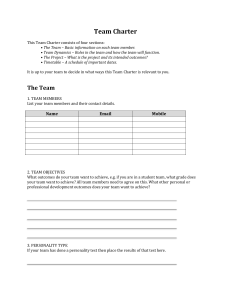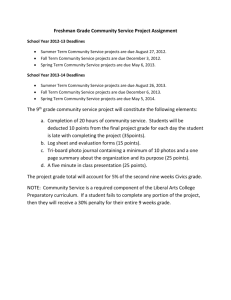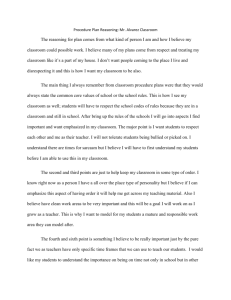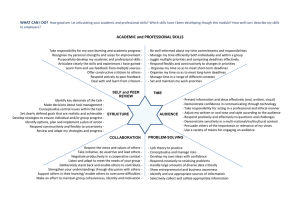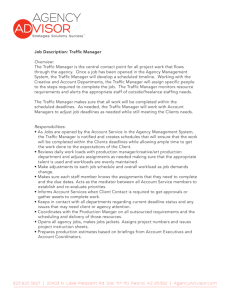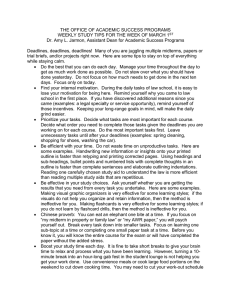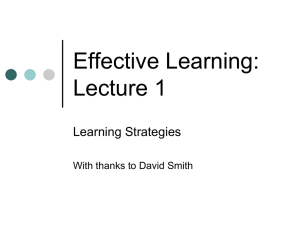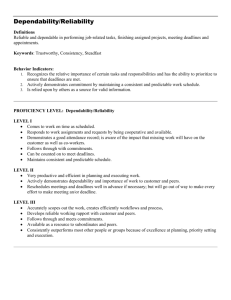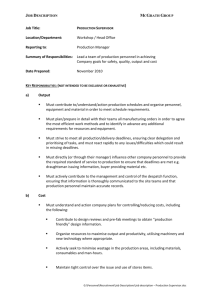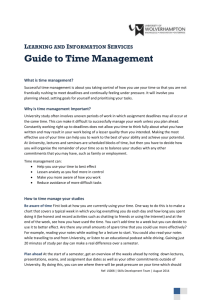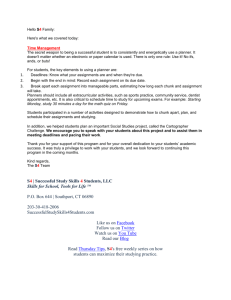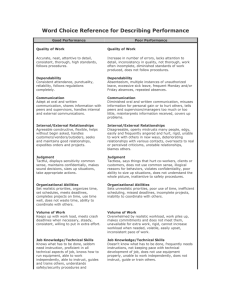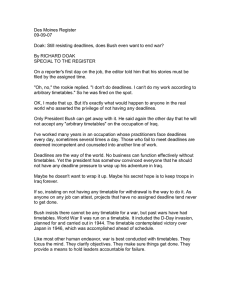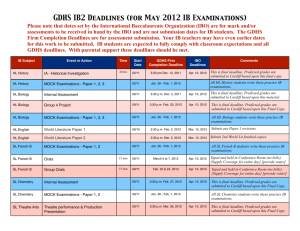How to meet deadlines
advertisement
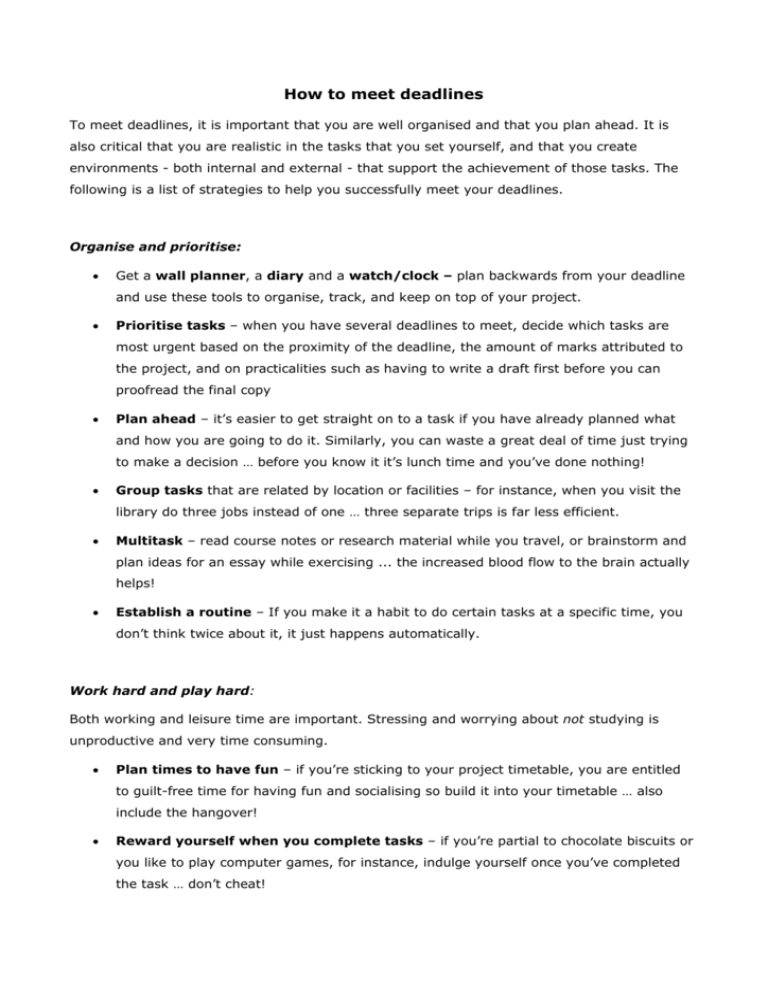
How to meet deadlines To meet deadlines, it is important that you are well organised and that you plan ahead. It is also critical that you are realistic in the tasks that you set yourself, and that you create environments - both internal and external - that support the achievement of those tasks. The following is a list of strategies to help you successfully meet your deadlines. Organise and prioritise: • Get a wall planner, a diary and a watch/clock – plan backwards from your deadline and use these tools to organise, track, and keep on top of your project. • Prioritise tasks – when you have several deadlines to meet, decide which tasks are most urgent based on the proximity of the deadline, the amount of marks attributed to the project, and on practicalities such as having to write a draft first before you can proofread the final copy • Plan ahead – it’s easier to get straight on to a task if you have already planned what and how you are going to do it. Similarly, you can waste a great deal of time just trying to make a decision … before you know it it’s lunch time and you’ve done nothing! • Group tasks that are related by location or facilities – for instance, when you visit the library do three jobs instead of one … three separate trips is far less efficient. • Multitask – read course notes or research material while you travel, or brainstorm and plan ideas for an essay while exercising ... the increased blood flow to the brain actually helps! • Establish a routine – If you make it a habit to do certain tasks at a specific time, you don’t think twice about it, it just happens automatically. Work hard and play hard: Both working and leisure time are important. Stressing and worrying about not studying is unproductive and very time consuming. • Plan times to have fun – if you’re sticking to your project timetable, you are entitled to guilt-free time for having fun and socialising so build it into your timetable … also include the hangover! • Reward yourself when you complete tasks – if you’re partial to chocolate biscuits or you like to play computer games, for instance, indulge yourself once you’ve completed the task … don’t cheat! Break the project down: Divide the project into small tasks and allocate time slots to achieve each task. • Give yourself several small deadlines and stick to them. • Define the tasks and make them specific, realistic and achievable • Do small tasks in small time slots - use spare bits of time productively Write it down: This helps you think about the project and identify what steps are involved in completing the project. • Write down what you plan to achieve and when you will work on specific tasks. • Become a ‘list’ person – write down the tasks on a list and then cross them through as you complete them. Crossing off the tasks is very satisfying … it’s quite addictive! Find extra time: • Find all of the small pieces of wasted time in your life and press them into service • Assess your life - are there any irrelevant or trivial time-expensive activities that you engage in? Could the time be better spent? Remove distractions: • Turn off your phone, the television, or any other distracting devices while you are working on the task at hand – you will complete it much faster and then have more time for socialising and having fun. • If you have other things on your mind that are interfering with your concentration, write them briefly on a piece of paper and put them safely to one side so that you can focus on the task ahead. Once you have finished the task you can ‘reload’ your troublesome thoughts into your brain. Work in the correct environment for the purpose You’re likely to be more productive drafting your essay introduction in the library than lying on the sofa in front of the television. • Create a dedicated study space in your home … and use it. • Make sure you have a comfortable study chair – you are more likely to spend time studying if your chair is comfortable … you can always purchase a piece of foam for extra padding if your budget does not stretch to a new chair. Know yourself: • Keep on track - monitor your progress and put in a little effort to catch up if you fall slightly behind … its easier to catch up from small delays than big ones. • Work on demanding tasks when you are at your best – are you a ‘morning person’ or a ‘night owl’? • Undertake tasks that require extended focus at times when you are less likely to be interrupted. • Allow for unforseen circumstances – something will always go wrong when it’s most inconvenient!
